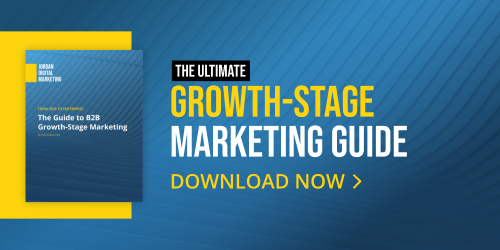As the first quarter of 2024 wound down, we assembled our clients to talk about the most important topic of the year in marketing: how to adapt to a future without cookies.
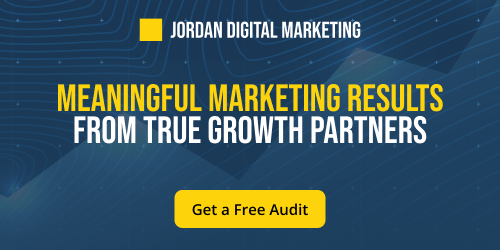
In this webinar, our resident marketing ops expert, Nathan Brown, dished up a ton of information about moving to the next phase of marketing tracking and measurement.
The top takeaways:
1. This has been in the works for years.
The Cambridge Analytica scandal, GDPR, CCPA, iOS 14, 15, and 17 – we’ve been moving to a life without cookies and with enhanced user privacy for years.
2. Losing data in an algorithm-driven ads landscape is a double-edged sword.
In today’s world of performance marketing, Google and Meta and others have moved hard in the direction of AI-driven bidding and targeting. Advertisers who can train those algorithms to find their best users have an advantage – an advantage that depends on data. That gives even more significance to the fact that we’re about to lose the conversion data we’ve come to depend on.
3. ClickIDs are changing
The major advertising platforms use Click IDs to track individual actions (e.g. a certain user clicked on a certain ad and converted) by passing parameters in the URL. In certain instances these may be stripped in privacy browsers. The big thing to look out for is that individual-level tracking is being cracked down on. Meaning, instead of generating one click ID for each ad click (telling us exactly what one specific person did), aggregated tracking methods are becoming more common.
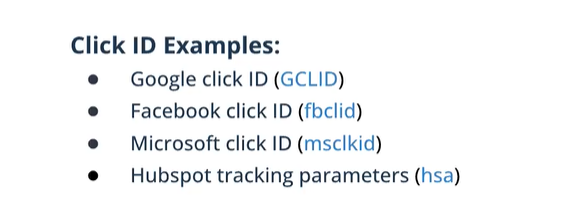
4. It’s not just about Chrome; it’s about Chromium.
The impending death of cookies isn’t just going to hit Chrome; it’s going to hit chromium browsers. Chrome is the most popular of those, but they also include Microsoft Edge, Brave, and a host of others – about 70% of web traffic between them.
5. It’s also not just about cookies.
The death of cookies means that the simplistic tracking that we’re used to will need an upgrade. Those impacted include: GTAG, third-party pixels, Google Tag Manager web-only containers, and tag management that lives away from the root domain.
6. The ad platforms have solutions to patch data gaps.
Whether they’re called enhanced conversions (Google), CAPI (Meta), Conversions API (LinkedIn) or something else, ad platforms have been developing tracking solutions independent of browsers so they can continue to ingest (and relay) data about how their campaigns are working. These solutions won’t replace all the data lost with cookies, but they’re essential for marketers to implement.
7. Long-term solutions will live on servers.
Browser tracking = bad news. The good news: server-side analytics, containers, and proxies will work in the new age of data collection because they can be engineered to act as first-party data providers. Essentially, rather than Google or Meta (or others) sending their third-party data to your website, they can send it to a first-party domain that then sends the data from a first-party domain to the website.
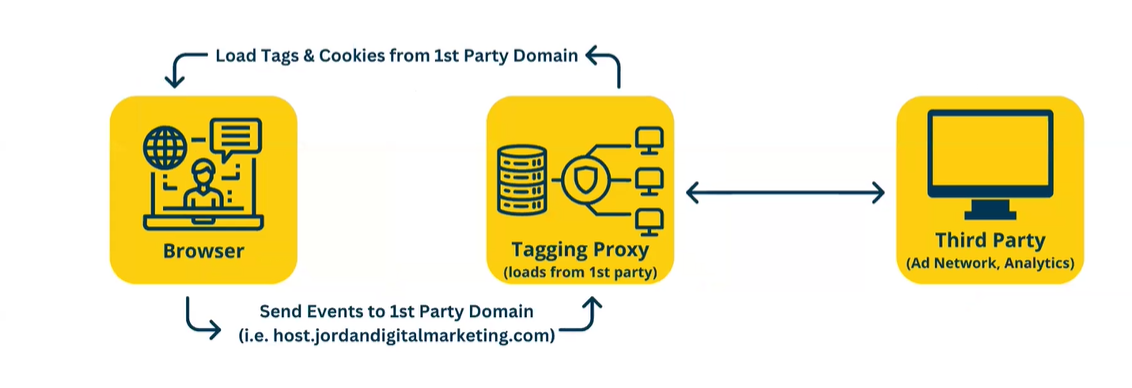
The above approach still depends on your browser, so if a tech-savvy person turned off Javascript or used a privacy plug-in, the tracking would disappear. So we recommend adding one more piece in addition to the tagging proxy: a storage stack (CDP, data warehouse, HubSpot/SFDC, etc.) from which you would send a Zap/webhook from your proxy.
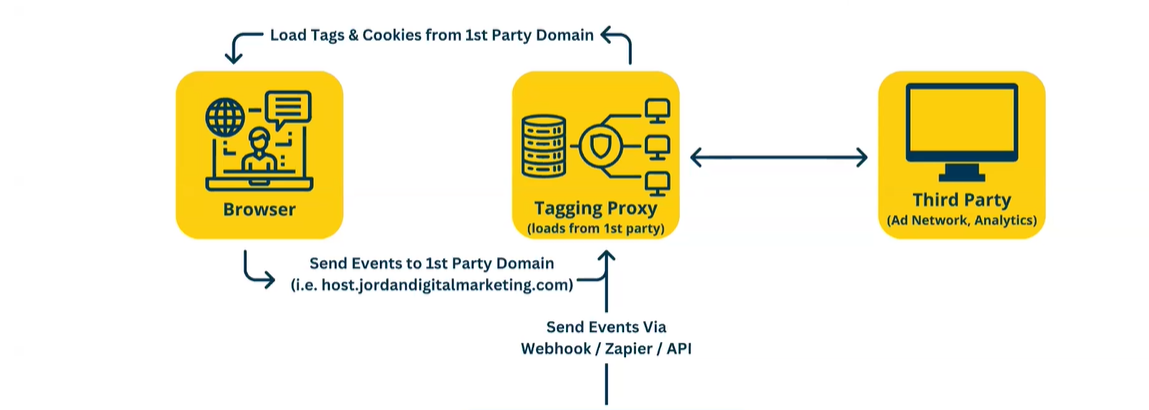
This might sound complicated, and it can be – but we’ve gotten very good at partnering with clients to implement it. If you’re behind the 8-ball and need to get moving on building a successful marketing strategy without cookies, reach out to start a conversation, and we’ll hop on a call to get started.
